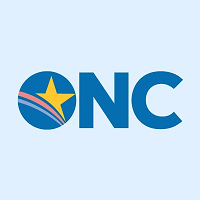 Driven by the 21st Century Cures Act’s API Standards Requirements
Driven by the 21st Century Cures Act’s API Standards Requirements
By Adam Wong, ONC
LinkedIn: Adam Wong
LinkedIn: ONC
The SMART Health IT (SMART) team based in Boston Children’s Hospital Computational Health Informatics Program has been a leader in developing new capabilities leveraging the HL7® FHIR® standard. A 2010 Strategic Health IT Advanced Research Project (SHARP) was SMART’s first ONC funding opportunity that led to the creation of the SMART on FHIR application programming interface (API). This API enables FHIR to work as an app platform. The SMART on FHIR API proceeded to become a standard required for health IT certification as part of ONC’s Cures Act Final Rule.
SMART has continued this important work through a 2020 Leading Edge Acceleration Projects (LEAP) in Health IT award. Their resulting innovation, “Cumulus: A Universal Research Sidecar for a SMART Learning Healthcare System,” is a first-in-kind health IT tool using the Bulk Data Access API to address data and health IT infrastructure challenges supporting public health.
The FHIR Bulk Data Access API
As part of ONC’s implementation of the 21st Century Cures Act through the Cures Act Final Rule, ONC adopted secure, standardized API requirements for health IT. This included a focus on the Cures Act’s reference to making “health information from such technology to be accessed, exchanged, and used without special effort.” One important part of the API certification requirements included the adoption of the HL7® FHIR® Bulk Data Access API.
The Bulk Data Access API enables access to patient-level data across a patient population, allowing core data elements to be readily and standardly extracted from electronic health records. This supports use cases in health care, research, and public health ecosystems at the local, regional, and national level. The API also facilitates uniform access to the United States Core Data for Interoperability (USCDI), which encompasses more than 100 FHIR data elements, including detailed clinical notes. There are now more than 250 products, from more than 200 health IT developers, supporting the Bulk Data Access API.
How Cumulus Works
While setup within a cloud environment, Cumulus sits behind a provider’s firewall, monitors the Bulk API for new patient data, and allows for customized creation of patient data cohorts. It provides four main features:
- Natural language processing (NLP) of clinical notes: NLP allows the insights embedded in clinical notes to be extracted, supercharging population-level analyses.
- De-identification of patient data: Cumulus prioritizes patient privacy by incorporating robust de-identification features, ensuring data analysis and sharing do not compromise individual confidentiality.
- Aggregation of multiple hospitals’ data into one anonymized data stream of patient counts: This allows for greater sample sizes to be collected over a larger geographic area.
- A dashboard for monitoring health in that aggregate population (currently in testing): A user-friendly tool for defining and interacting with patient data cohorts.
Prioritizing Public Health
These combined features make Cumulus a promising tool for advancing public health. As part of CDC’s Data Modernization Initiative, Cumulus has been piloted within a network of five health system and public health department partners. The initial pilot targets critical areas such as COVID-19 management, chronic disease monitoring, opioid overdose tracking, and mental health surveillance.
Cumulus has a quick and easy installation process and is capable of supporting infectious disease, chronic illness, and mental health condition use cases, allowing it to extend its reach in the public health realm. Public health professionals can both create their own computable case definitions and implement new ones as situations evolve. Additionally, public health experts can investigate longitudinal health data for dynamic surveillance using analytics generated from the tool.
What’s on the Horizon
Boston Children’s Hospital was awarded LEAP in Health IT funding in 2023 to pursue the next stage of Cumulus development, CumulusQ, which seeks to improve FHIR data quality across the ecosystem. The new effort will cultivate an interoperable health IT ecosystem that permits easy access to high-quality, standardized healthcare data, with a particular focus on USCDI in FHIR format.
We look forward to seeing Cumulus support new areas including care management and research. The Cumulus source code is available under an open-source license, allowing developers, institutions, and innovators to test drive the tool today!
This article was originally published on the Health IT Buzz and is syndicated here with permission.
